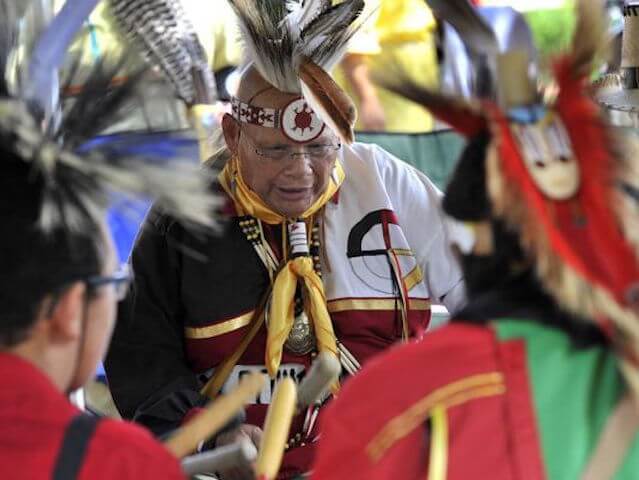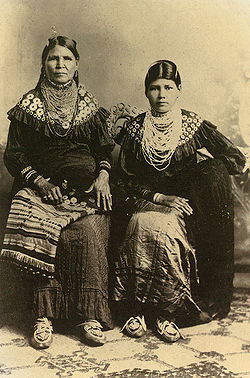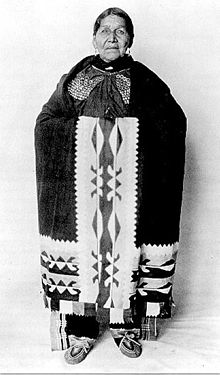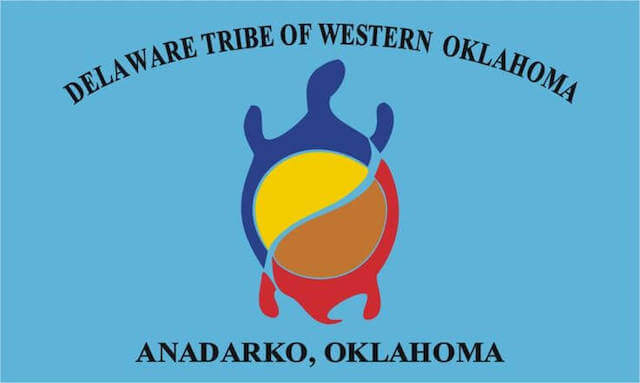To view this page in another language, please click here:
Lenape
(Delaware)
Literature
Lenni-Lenape (or Lenni-Lenapi) comes from their autonym, Lenni, meaning "genuine, pure, real, original," and Lenape, meaning "Indian" or "man". (cf. Anishinaabe.) Alternately, lënu is translated as "man."
The Lenape are a loose association of related people who spoke the similar languages and who shared the same familial bonds in an area known as Lenapehoking, the Lenape traditional territory, which spans eastern Pennsylvania, western New Jersey, and eastern Delaware. English colonists named the Delaware River after Thomas West, 3rd Baron De La Warr, the first Governor the Virginia. English people then called the Lenape the Delaware Indians, while early Swedish sources listed them as the Renappi.
Delaware Indian History
Delaware Tribe of Indians
Official Website
Lenape Nation Web Site
Lenape Indians in the Delaware Valley
Stockbridge Munsee Community
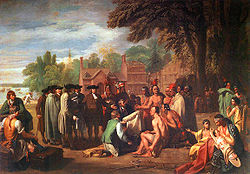
These are:
Wolf, Took-seat
Big Feet, Mä an'greet
Yellow Tree, Wee-sow-het'-ko
Pulling Corn, Pä-sakun'a'-mon
Care Enterer, We-yar-nih'kä-to
Across the River, Toosh-war-ka'ma
Vermillion, O-lum'-a-ne
Dog standing by fireside, Pun-ar'-you
Long Body, Kwin-eek'cha
Digging, Moon-har-tar'ne
Pulling up Stream, Non-har'-min
Brush Log, Long-ush-har-kar'-to
Bringing Along, Maw-soo-toh[17]
Turtle,
Poke-koo-un'go
Ruler, O-ka-ho'-ki
High Bank Shore, Ta-ko-ong'-o-to
Drawing Down Hill, See-har-ong'-o-to
Elector, Ole-har-kar-me'kar-to
Brave, Ma-har-o-luk'-ti
Green Leaves, Toosh-ki-pa-kwis-i
Smallest Turtle, Tung-ul-ung'-si
Little Turtle, We-lung-ung-sil
Snapping Turtle, Lee-kwin-a-i'
Deer, Kwis-aese-kees'to[17]
Turkey, Pul-la'-ook
Big Bird, Mor-har-ä-lä
Bird's Cry, Le-le-wa'-you
Eye Pain, Moo-kwung-wa-ho'ki
Scratch the Path, Moo-har-mo-wi-kar'-nu
Opossum Ground, O-ping-ho'-ki
Old Shin, Muh-ho-we-kä'-ken
Drift Log, Tong-o-nä-o-to
Living in Water, Nool-a-mar-lar'-mo
Root Digger, Muh-krent-har'-ne
Red Face, Mur-karm-huk-se
Pine Region, Koo-wä-ho'ke
Ground Scratcher, Oo-ckuk'-ham
Origin of the American Eagle Emblem
"When you begin a great work you can't expect to finish it all at once; therefore do you and your brothers press on and let nothing discourage you till you have entirely finished what you have begun."
"Now, Brother, as for me, I assure you I will press on and the contrary winds may blow strong in my face, yet I will go forward and never turn back and continue to press forward until I have finished, and I would have you do the same."
"Though you may hear birds singing on this side and that side, you must not take notice of that, but hear me when I speak to you and take it to heart, for you may always depend that what I say shall be true."
"The great man wanted only a little, little land, on which to raise greens for his soup, just as much as a bullock's hide would cover. Here we first might have observed their deceitful spirit."
Delaware oral
tradition describing
the arrival of the Dutch at Manhattan
Island
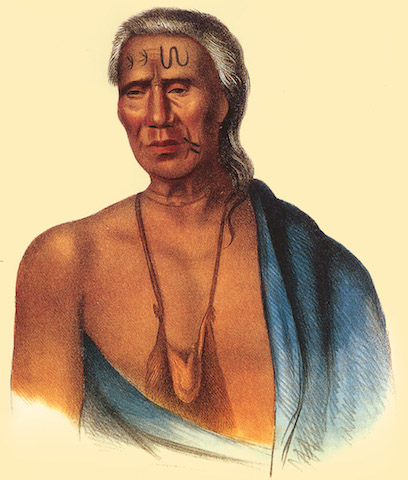
Portrait by Gustavus
Hesselius 1735
Chief
Lapowinsa
"I admit that there are good white men, but they bear no proportion to the bad; the bad must be the strongest, for they rule. They do what they please. They enslave those of us who are not of their color, although created by the same Great Spirit who created us. They would make slaves of us if they could, but as they cannot do it, they kill us! There is no faith to be placed in their words. They are not like the Indians who are only enemies while at war and are friends in peace. They will say to an Indian, 'my friend! my brother!' They will take him by the hand, and at the same moment destroy him. And so will you also be treated by them before long. Remember! that this day I have warned you to beware of such friends as these. I know the long knives; they are not to be trusted."
The words of Pachgantschilhilas ring true. He spoke them in the eighteenth century, and they are as full of truth now as then. And we are asked why we do not view time as a linear progression.
All life is a circle.
Pachgantschilhilas, Head Warrior of all Delaware
Delaware Executive Committee
P.O. Box 825
Anadarko, OK 73005
405-247-2448
![]() Return
to Indigenous Peoples' Literature
Return
to Indigenous Peoples' Literature
Compiled by: Glenn
Welker
ghwelker@gmx.com
This page last updated 05/27/2019 22:50:50
This site has been accessed 10,000,000 times since February 8, 1996.
